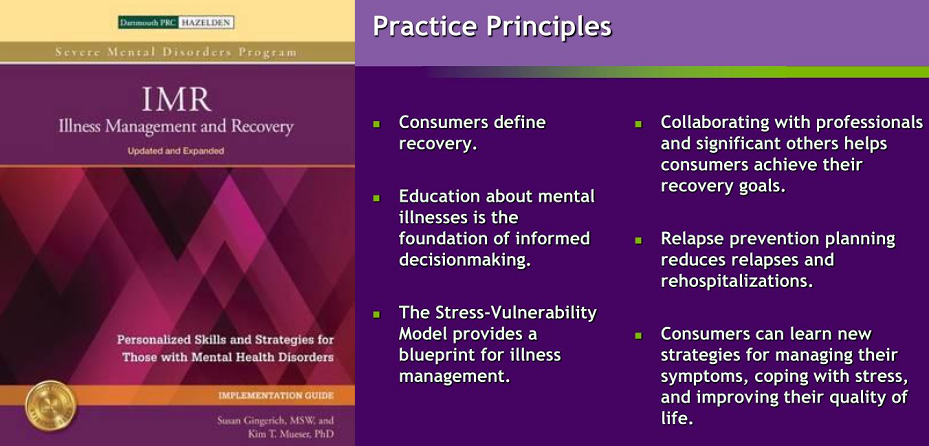
For Mental Health Care & Wellbeing
Mental health care is providing services and support for people with mental health conditions or experiencing mental health problems.
Mental health care can include prevention, promotion, treatment, rehabilitation, and recovery. Different types of professionals can provide mental health care, such as psychiatrists, psychologists, counsellors, social workers, nurses, and peer workers.
Mental health care can be delivered in different settings, such as hospitals, clinics, community centres, schools, workplaces, and online. Mental health care is important for improving individuals’ and communities’ well-being and quality of life.
Wellbeing is a state of being satisfied and fulfilled in all aspects of physical, mental, and social well-being. Wellbeing is also a way of thinking that aims to contribute to society and the environment as well as oneself.
Wellbeing activities are things that you can do to improve your wellbeing in different aspects, such as physical, mental, social, financial, and career wellbeing. Wellbeing activities can help you feel happier, healthier, more fulfilled, and more connected to yourself and others. Wellbeing activities can also boost your productivity, creativity, motivation, and resilience at work.
Some examples of wellbeing activities are:
– Physical wellbeing activities: These are activities that help you take care of your body and improve your physical health. For example, you can exercise regularly, eat a balanced diet, drink enough water, get enough sleep, avoid smoking and alcohol, or practice good hygiene.
– Mental wellbeing activities: These are activities that help you cope with stress, manage your emotions, improve your mood and enhance your cognitive abilities. For example, you can meditate, practice gratitude, learn something new, read a book, listen to music, do something creative or seek professional help if needed.
– Social wellbeing activities: These are activities that help you build and maintain positive relationships with others and feel a sense of belonging and support. For example, you can spend time with your family and friends, join a club or a community group, volunteer for a cause, communicate effectively, give and receive feedback or resolve conflicts.
– Financial wellbeing activities: These are activities that help you manage your money wisely and achieve your financial goals. For example, you can make a budget, save for the future, pay off your debts, invest wisely, seek financial advice or donate to charity.
– Career wellbeing activities: These are activities that help you find meaning and purpose in your work and develop your skills and potential. For example, you can set SMART goals, seek feedback and mentoring, pursue learning opportunities, celebrate your achievements, or explore new career paths.
These are just some examples of wellbeing activities that you can try. You can also find more ideas online or create your own wellbeing activities that suit your preferences and needs. The important thing is to make wellbeing a priority and a habit in your life.
Sources:
(1) https://www.terryberry.com/gb/blog/50-wellbeing-activities/
(2) Promoting well-being – WHO.

Mental health social workers may provide a variety of treatments and interventions to individuals or groups experiencing mental health issues. These may include:
Counseling and therapy: Mental health social workers can provide talk therapy or counseling services to individuals, families, or groups, using evidence-based treatment approaches such as cognitive-behavioral therapy (CBT), mindfulness-based stress reduction (MBSR), and solution-focused therapy.
Case management: Mental health social workers may help individuals navigate the healthcare system and connect them with appropriate resources such as medical care, housing, employment services, or financial assistance.
Crisis intervention: In times of crisis, mental health social workers may provide immediate support and intervention, including safety planning, suicide prevention, and referrals to emergency services.
Advocacy: Mental health social workers may act as advocates for their clients, working to protect their rights and ensure that they receive the care and resources they need.
Education and prevention: Mental health social workers may work with community organizations and schools to provide education and prevention programs aimed at promoting mental health and reducing the stigma associated with mental illness.
Overall, the goal of mental health social workers is to help individuals and communities achieve and maintain optimal mental health and wellbeing.

Illness Management and Recovery (IMR) is a standardized psychosocial intervention that is designed to help people with severe mental illness better manage their illness and achieve personally meaningful goals. IMR was created in conjunction with the National Implementing Evidence-Based Practices (NIEBP) project, with the aim of incorporating empirically supported illness self-management strategies into a single program. IMR was developed by a team of researchers led by Kim T. Mueser, Ph.D., who is a professor of psychiatry and community and family medicine at Dartmouth Medical School.
Illness management and recovery (IMR) is a person-centered approach to mental health treatment that focuses on helping individuals learn how to manage their symptoms and live fulfilling lives. IMR is based on the idea that individuals with mental illness have the capacity to recover and that they can play an active role in their own treatment.
Social workers can use IMR in a variety of ways. They can provide psychoeducation to individuals and their families about mental illness and treatment options. They can also help individuals develop coping skills and strategies for managing their symptoms. Social workers can also provide support and encouragement to individuals as they work to achieve their recovery goals.
IMR is an effective approach to mental health treatment that has been shown to improve symptoms, reduce relapse, and increase the quality of life. Social workers can play an important role in helping individuals with mental illness manage their illness and recover.
Here are some specific examples of how social workers can use IMR in their practice:
Provide psychoeducation:
Social workers can provide psychoeducation to individuals and their families about mental illness and treatment options. This can help individuals to understand their illness, its symptoms, and how to manage it.
Help individuals develop coping skills:
Social workers can help individuals develop coping skills and strategies for managing their symptoms. This can include things like stress management, relaxation techniques, and problem-solving skills.
Provide support and encouragement:
Social workers can provide support and encouragement to individuals as they work to achieve their recovery goals. This can be done through individual counseling, group therapy, or peer support groups.
Advocate for individuals:
Social workers can advocate for individuals with mental illness to ensure that they have access to the services and support they need. This can include things like helping individuals to get access to medication, housing, and employment.
Illness management and recovery (IMR) is a person-centered approach to mental health treatment that focuses on helping individuals learn how to manage their symptoms and live fulfilling lives. IMR is based on the idea that individuals with mental illness have the capacity to recover and that they can play an active role in their own treatment.
IMR uses a variety of psychotherapies, including cognitive-behavioral therapy (CBT), motivational interviewing, and relapse prevention. CBT is a type of therapy that helps individuals to identify and change the negative thoughts and behaviors that contribute to their symptoms. Motivational interviewing is a type of therapy that helps individuals to increase their motivation to change their behavior. Relapse prevention is a type of therapy that helps individuals to identify and avoid the triggers that can lead to a relapse.
IMR is an effective approach to mental health treatment that has been shown to improve symptoms, reduce relapse, and increase the quality of life. IMR is a valuable tool that can help individuals with mental illness manage their illness and recover.
Here are some specific examples of psychotherapies used in IMR:
Cognitive-behavioral therapy (CBT):
CBT is a type of therapy that helps individuals to identify and change the negative thoughts and behaviors that contribute to their symptoms. CBT is based on the idea that our thoughts, feelings, and behaviors are all interconnected. When we have negative thoughts, it can lead to negative feelings and behaviors. CBT can help us to identify these negative thoughts and replace them with more helpful thoughts. This can lead to a reduction in negative feelings and an improvement in our behavior.
Motivational interviewing:
Motivational interviewing is a type of therapy that helps individuals to increase their motivation to change their behavior. Motivational interviewing is based on the idea that change is a process that occurs over time. Individuals are more likely to change their behavior if they are motivated to do so. Motivational interviewing can help individuals to explore their reasons for wanting to change and develop a plan for making the change.
Relapse prevention:
Relapse prevention is a type of therapy that helps individuals to identify and avoid the triggers that can lead to a relapse. Relapse prevention is based on the idea that relapse is a normal part of the recovery process. Individuals are more likely to relapse if they are not prepared for it. Relapse prevention can help individuals to identify their triggers and to develop a plan for coping with them.
IMR is a valuable tool that can help individuals with mental illness manage their illness and recover. By using a variety of psychotherapies, IMR can help individuals to identify and change the negative thoughts and behaviors that contribute to their symptoms, increase their motivation to change and develop a plan for coping with triggers.
IMR is a valuable tool that social workers can use to help individuals with mental illness manage their illness and recover. By providing psychoeducation, helping individuals develop coping skills, providing support and encouragement, and advocating for individuals, social workers can make a real difference in the lives of people with mental illness.
Sources:
(1) Illness Management and Recovery: A Review of the Literature.
(2) Illness Management and Recovery Program: Rationale …

While both mental health social workers and clinical psychologists provide mental health treatments, they differ in their approach, training, and scope of practice.
Mental health social workers typically have a degree in social work and focus on addressing the social and environmental factors that contribute to mental health issues. They use a range of interventions, such as counseling, case management, and advocacy, to help individuals and families access resources and services, improve their living conditions, and build support networks. They also work to reduce stigma and promote social justice, recognizing that mental health is closely linked to broader social and economic issues.
Clinical psychologists, on the other hand, have a doctoral degree in psychology and specialize in assessing, diagnosing, and treating mental health disorders using evidence-based psychotherapy techniques. They typically focus on addressing the underlying psychological and cognitive factors that contribute to mental health issues, such as negative thinking patterns, trauma, or dysfunctional family dynamics. They may use a variety of therapeutic modalities, such as cognitive-behavioral therapy (CBT), psychodynamic therapy, or interpersonal therapy, to help individuals develop coping skills, change their behavior, or work through emotional challenges.
In summary, mental health social workers tend to focus on the social and environmental factors that contribute to mental health issues and provide a range of interventions to help individuals and communities access resources and services, while clinical psychologists tend to focus on the psychological and cognitive factors that contribute to mental health disorders and provide evidence-based psychotherapy to address those factors directly.

